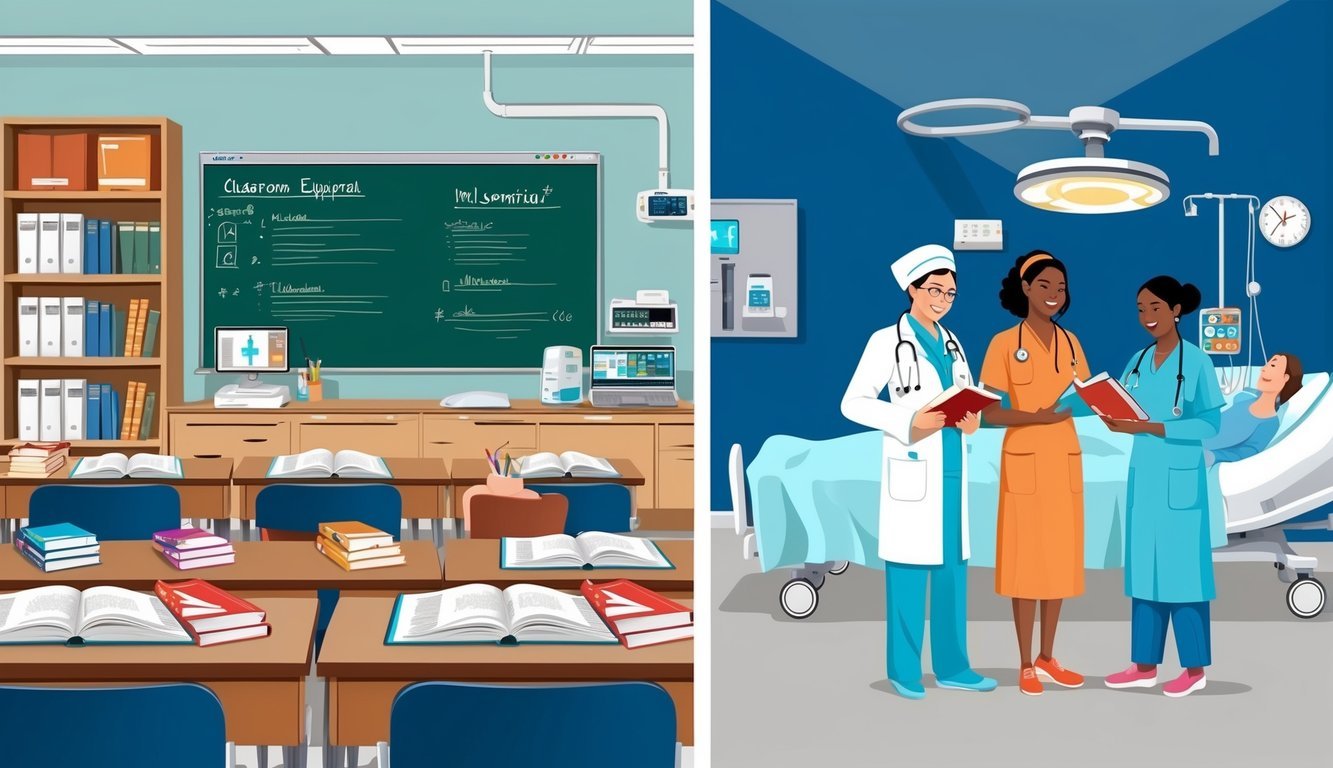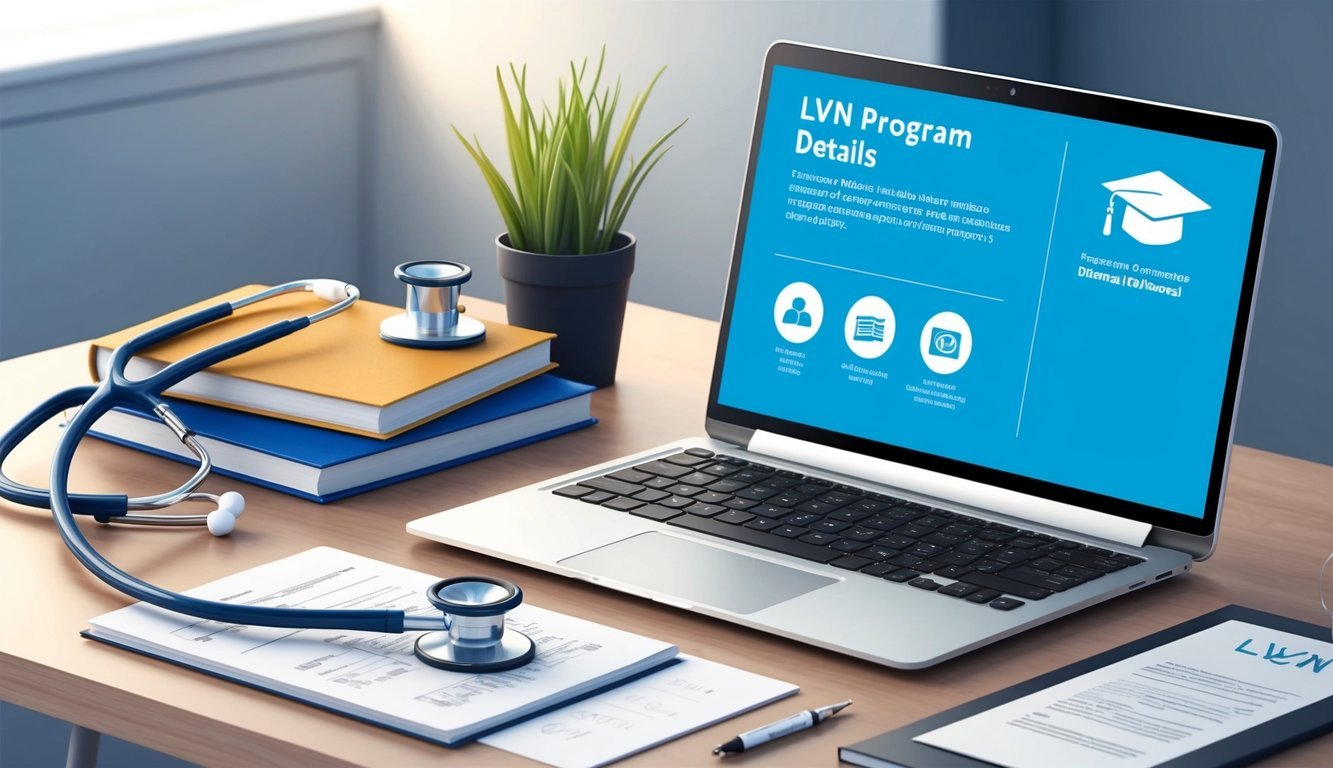The Licensed Vocational Nurse (LVN) program in Houston offers an excellent pathway to a rewarding nursing career.
Completing this program can help you gain the skills necessary to provide patient care and work effectively in various healthcare settings.
As a vital part of the healthcare team, LVNs are essential in delivering compassionate care and supporting registered nurses.
In Houston, several institutions provide accredited LVN programs that prepare you for the demands of the nursing profession.
These programs focus on practical training and theoretical knowledge, ensuring you are equipped to handle the challenges of nursing.
From hands-on clinical experiences to classroom instruction, you will learn about patient assessments, medication administration, and effective communication in a healthcare environment.
Embarking on an LVN career in Houston opens doors to numerous job opportunities.
The demand for skilled nurses continues to grow, making this an ideal time to enter the field.
By obtaining your LVN license, you position yourself for a stable and fulfilling career in the ever-evolving healthcare landscape.
Understanding LVN Programs in Houston
Licensed Vocational Nurse (LVN) programs in Houston offer a structured path to enter the nursing field.
As you explore your options, it’s vital to consider accreditation, program length, and the application process to ensure you choose the right program for your needs.
Accreditation and Approval
Accreditation is crucial for any nursing program.
In Houston, programs must be approved by the Texas Board of Nursing.
This ensures that the curriculum meets state standards, allowing graduates to sit for the NCLEX-PN licensure examination.
When researching programs, verify their accreditation status on the Texas Board of Nursing website.
Accredited programs not only enhance your education but also improve your employment prospects within healthcare facilities.
Program Duration and Study Mode
The duration of LVN programs typically ranges from 1 to 2 years, depending on the institution and your study mode.
Here’s a quick overview of the options:
| Duration | Study Mode |
|---|---|
| 12 months | Full-Time |
| 18-24 months | Part-Time/Online |
Full-time programs offer a more structured schedule, while part-time or online options provide flexibility for those balancing work or personal commitments. Ensure you choose a program that fits your lifestyle and financial situation.
Admissions Process
Engaging in the LVN admissions process is straightforward but requires attention to detail.
Most programs require you to follow an Admissions Guide that outlines necessary steps.
Common requirements include:
- Completed application form
- High school diploma or equivalent
- Prerequisite coursework
- Immunization records
You can often find an online application on the program’s website, making the process more convenient.
Be sure to adhere to application deadlines and provide all requested documents to ensure your eligibility.
Familiarize yourself with the requirements by visiting specific program pages like Houston Community College’s LVN Admissions Guide.
Academic and Clinical Training Components

In your journey to become a Licensed Vocational Nurse (LVN) in Houston, you will engage in both academic instruction and hands-on clinical training.
Each component is designed to equip you with essential nursing skills and knowledge necessary for patient care.
Classroom Learning
Classroom learning is crucial as it provides the theoretical foundation in nursing.
You will cover topics such as anatomy, physiology, pharmacology, and nursing ethics.
Programs like those offered at Houston Community College focus on a comprehensive curriculum that includes 44 credits.
Additionally, you will learn critical nursing skills essential for daily practice.
This includes understanding patient assessments, care planning, and basic nursing procedures.
The classroom setting encourages interaction, allowing you to ask questions and participate in discussions with instructors and peers.
Clinical Training
Clinical training is where theory meets practice.
You will complete hands-on training under the supervision of licensed professionals in various healthcare settings.
Programs typically require you to undertake 704 hours of clinical training, providing valuable experience.
During this training, you will apply your classroom knowledge in real-world scenarios.
You will work in diverse settings, including hospitals, clinics, and nursing homes, gaining exposure to different patient populations.
The focus will include specialized nursing areas such as pediatric nursing, geriatric nursing, and mental health nursing.
This diversity enhances your skills and prepares you for various challenges in your nursing career.
Specialized Nursing Areas
In the LVN program, specialization is essential for developing advanced skills.
You will encounter various nursing areas like pediatric, geriatric, and mental health nursing.
Each area requires unique knowledge and techniques tailored to specific patient needs.
For instance, pediatric nursing focuses on the care of infants and children, necessitating different communication and treatment approaches.
In contrast, geriatric nursing emphasizes the complexities of elderly care, including managing chronic conditions.
Finally, mental health nursing is integral, as it involves understanding mental health disorders and providing appropriate care strategies.
Programs equip you with the tools to handle these specialized fields, ensuring you are well-prepared to meet the diverse needs of patients in your future practice.
Preparation for the NCLEX-PN Examination
Preparing for the NCLEX-PN Examination is a crucial step in your journey to becoming a Licensed Vocational Nurse (LVN).
This preparation involves understanding the exam structure and the licensing process.
NCLEX-PN Exam Overview
The NCLEX-PN exam assesses your competency as a potential Licensed Vocational Nurse.
It covers various content areas, including safe and effective care environments, health promotion, and maintenance, as well as psychosocial and physiological integrity.
Exam Format:
- Number of Questions: 75-145
- Time Limit: Up to 5 hours
- Question Types: Multiple-choice, fill-in-the-blank, and ordered responses
You can familiarize yourself with the testing format by participating in practice exams and review sessions.
Utilizing resources such as the NCLEX-PN Test Plan will provide detailed content outlines.
Preparation courses often include review of practice questions and strategies tailored for the NCLEX format, which can significantly enhance your readiness.
Licensure and Certification
After passing the NCLEX-PN exam, you’ll be eligible to obtain your LPN license.
The process generally includes submitting your official exam results, proof of completed nursing education, and any required application fees to your state’s Board of Nursing.
Licensure Requirements:
- Pass the NCLEX-PN Exam
- Complete an Approved LVN Program
- Submit Application with Required Fees
In Texas, for instance, the Texas Board of Nursing oversees the licensure process.
They may also involve an additional criminal background check as part of your application.
Understanding these steps can pave the way for a smoother transition into your nursing career.
For more information, visit the Texas Board of Nursing.
Essential Admissions Criteria and Prerequisites

Before applying to an LVN program in Houston, you need to be aware of specific admissions criteria and prerequisites.
Understanding these requirements ensures you are well-prepared for the application process.
General Education Requirements
To qualify for an LVN program, you must meet certain general education requirements.
Typically, this includes:
- High School Diploma or GED: You need a completed high school education.
- Minimum GPA: Many programs require a minimum GPA, often around 2.5.
- Standardized Tests: Some institutions may ask for scores from tests like the HESI Admission Assessment.
In addition to these, courses in subjects such as Biology, Chemistry, and Mathematics may be beneficial.
Completing these courses not only strengthens your application but also prepares you for the nursing curriculum.
For more details on admissions, visit Texas Health School.
Health and Compliance Standards
Health and compliance standards are crucial for admission.
You generally need to fulfill the following requirements:
- Immunization Records: Proof of vaccinations is typically required, including MMR, Tdap, and Hepatitis B.
- Drug Screening: A negative drug screening is usually mandatory before enrollment.
- CPR Certification: You must have current CPR certification from a recognized program.
- Physical Examination: A health exam to ensure you meet physical requirements for nursing duties is often required.
Meeting these standards not only guarantees your safety but also that of your future patients.
Always check with your chosen program for specific guidelines.
For more information on health requirements, refer to the Admissions Guide.
Career Prospects and Continuing Education

As you consider a career as a Licensed Vocational Nurse (LVN) in Houston, it is essential to understand the available employment opportunities and the potential for advancement through continuing education.
The healthcare sector consistently seeks qualified professionals, providing a solid foundation for your nursing career.
Employment Opportunities
The demand for licensed vocational nurses is growing rapidly within the healthcare team.
LVNs play a vital role in delivering patient-centered care and supporting registered nurses and physicians.
Common work settings include:
- Hospitals
- Long-term care facilities
- Home health agencies
- Rehabilitation centers
According to the Texas Workforce Commission, job openings for LVNs in Houston are projected to increase significantly.
With a focus on providing high-quality care, your skills will be instrumental in managing patient needs, administering medications, and contributing to treatment plans.
The ability to work flexible hours often adds to the appeal of this career path.
Advancement and Specialization
Continuing education is vital for career advancement as an LVN.
Opportunities for specialization can enhance your qualifications and increase your earning potential.
Key areas of specialization may include:
- Medication Aide Training Program: This certification allows you to administer medications, expanding your role within healthcare.
- Nurse Aide Training Program: This foundational training provides essential skills that benefit both you and your patients.
By pursuing further education, such as obtaining an Associate Degree in Nursing (ADN) or a Bachelor’s of Science in Nursing (BSN), you can transition into roles with greater responsibility.
Each step not only enhances your knowledge but also opens doors to leadership positions, increasing your value in the healthcare system.
Consider exploring programs at institutions like Houston Community College.
They offer comprehensive pathways for aspiring healthcare professionals.

